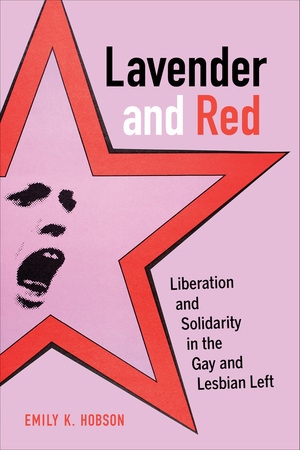In recognition of the latest milestone for LGBTQ rights in the United States, UC Press celebrates the landmark Supreme Court ruling that protects gay and transgender workers from workplace discrimination. UC Press is honored to publish titles that shed light on the unique experiences of LGBTQ individuals and the long history of LGBTQ activism and politics.
From the earliest marches in 1970 to this month’s events around the Bay Area and the world, Pride has celebrated and commemorated the LGBTQ community’s culture and heritage for over 40 years even though COVID-19 has changed the nature of celebrations this year.
After Silence
A History of AIDS through Its Images
by Avram Finkelstein
Early in the 1980s AIDS epidemic, six gay activists created one of the most iconic and lasting images that would come to symbolize a movement: a protest poster of a pink triangle with the words “Silence = Death.” The graphic and the slogan still resonate today, often used—and misused—to brand the entire movement. Cofounder of the collective Silence = Death and member of the art collective Gran Fury, Avram Finkelstein tells the story of how his work and other protest artwork associated with the early years of the pandemic were created. In writing about art and AIDS activism, the formation of collectives, and the political process, Finkelstein reveals a different side of the traditional HIV/AIDS history, told twenty-five years later, and offers a creative toolbox for those who want to learn how to save lives through activism and making art.
Lavender and Red
Liberation and Solidarity in the Gay and Lesbian Left
by Emily K. Hobson
LGBT activism is often imagined as a self-contained struggle, inspired by but set apart from other social movements. Lavender and Red recounts a far different story: a history of queer radicals who understood their sexual liberation as intertwined with solidarity against imperialism, war, and racism. This politics was born in the late 1960s but survived well past Stonewall, propelling a gay and lesbian left that flourished through the end of the Cold War. The gay and lesbian left found its center in the San Francisco Bay Area, a place where sexual self-determination and revolutionary internationalism converged. Across the 1970s, its activists embraced socialist and women of color feminism and crafted queer opposition to militarism and the New Right.

Has the Gay Movement Failed?
by Martin Duberman
The past fifty years have seen significant shifts in attitudes toward LGBTQ people and wider acceptance of them in the United States and the West. Yet the extent of this progress, argues Martin Duberman, has been more broad and conservative than deep and transformative. One of the most renowned historians of the American left and the LGBTQ movement, as well as a pioneering social-justice activist, Duberman reviews the half century since Stonewall with an immediacy and rigor that informs and energizes.
The Gentrification of the Mind
Witness to a Lost Imagination
by Sarah Schulman
In this gripping memoir of the AIDS years (1981–1996), Sarah Schulman recalls how much of the rebellious queer culture, cheap rents, and a vibrant downtown arts movement vanished almost overnight to be replaced by gay conservative spokespeople and mainstream consumerism. Schulman takes us back to her Lower East Side and brings it to life, filling these pages with vivid memories of her avant-garde queer friends and dramatically recreating the early years of the AIDS crisis as experienced by a political insider. Interweaving personal reminiscence with cogent analysis, Schulman details her experience as a witness to the loss of a generation’s imagination and the consequences of that loss.
Punishing Disease
HIV and the Criminalization of Sickness
by Trevor Hoppe
From the very beginning of the epidemic, AIDS was linked to punishment. Calls to punish people living with HIV—mostly stigmatized minorities—began before doctors had even settled on a name for the disease. Punishing Disease looks at how HIV was transformed from sickness to badness under the criminal law and investigates the consequences of inflicting penalties on people living with disease.
Dude, You’re a Fag
Masculinity and Sexuality in High School
by C. J. Pascoe
High school and the difficult terrain of sexuality and gender identity are brilliantly explored in this smart, incisive ethnography. Based on eighteen months of fieldwork in a racially diverse working-class high school, Dude, You’re a Fag sheds new light on masculinity both as a field of meaning and as a set of social practices. C. J. Pascoe’s unorthodox approach analyzes masculinity as not only a gendered process but also a sexual one. She demonstrates how the “specter of the fag” becomes a disciplinary mechanism for regulating heterosexual as well as homosexual boys and how the “fag discourse” is as much tied to gender as it is to sexuality.




